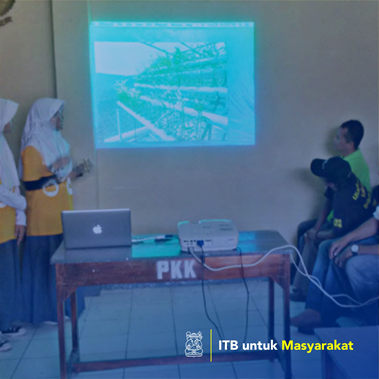

Teti Armiati Argo
This service program aims to foster student care, teachers and schools in the issue of green infrastructure at the local level (waste management, quality of green open space, and river pollution); and encourage their active participation in an effort to overcome these problems. This service program uses competitive online digital game applications, which aims to map visually (photos and videos) of green infrastructure issues in the area around the school. Students and teachers are trained to use the game application. Students collect and disseminate data on mapping from residents. Then together with teachers (schools) and residents, students formulate an action plan to overcome the existing green infrastructure issues. This research involved students and teachers of SMAN 12 Bandung and residents of Cidurian Village, which are the slum villages located around the school. This location was chosen because it was loaded with the issue of pollution and waste that had not been resolved. The results of the overall outcomes of the dedication program are (1) effective and innovative effective methods (using online game technology applications) to encourage the growth of student and school participation in the issue of green infrastructure (stage 1, 2015); (2) Tools and Teaching Tools, Modules and Curriculum Supplements Environmental and Biology Subjects for Secondary Educational Institutions of High School (Phase 2, 2016); (3) Visual data mapping of digital green infrastructure issues in the area of ​​Cidurian village that can be read and utilized by the city government, and the interested parties and broad audiences to determine the assets and problems of green infrastructure in the region (stage 2, 2016); (4) Methods for facilitating students to be able to participate actively and creative in activities to respond to the issue of green infrastructure together with community residents (stage 1 & amp; 2); (5) The results of evaluation of activities (stage 1 & amp; 2) which will be socialized in seminars and media times.
How about the work of art / design / architecture / regional planning, the implementation of social care activities in the form of education / counseling / assistance
Currently grade 10 and 11 students in several schools in the city of Bandung have received information related to waste management, the quality of green open space, and river pollution through local and biological content lessons. But the material provided is still limited to the provision of basic information and has not yet come to efforts to foster concern and encourage active and creative participation of students in an effort to respond to environmental issues.